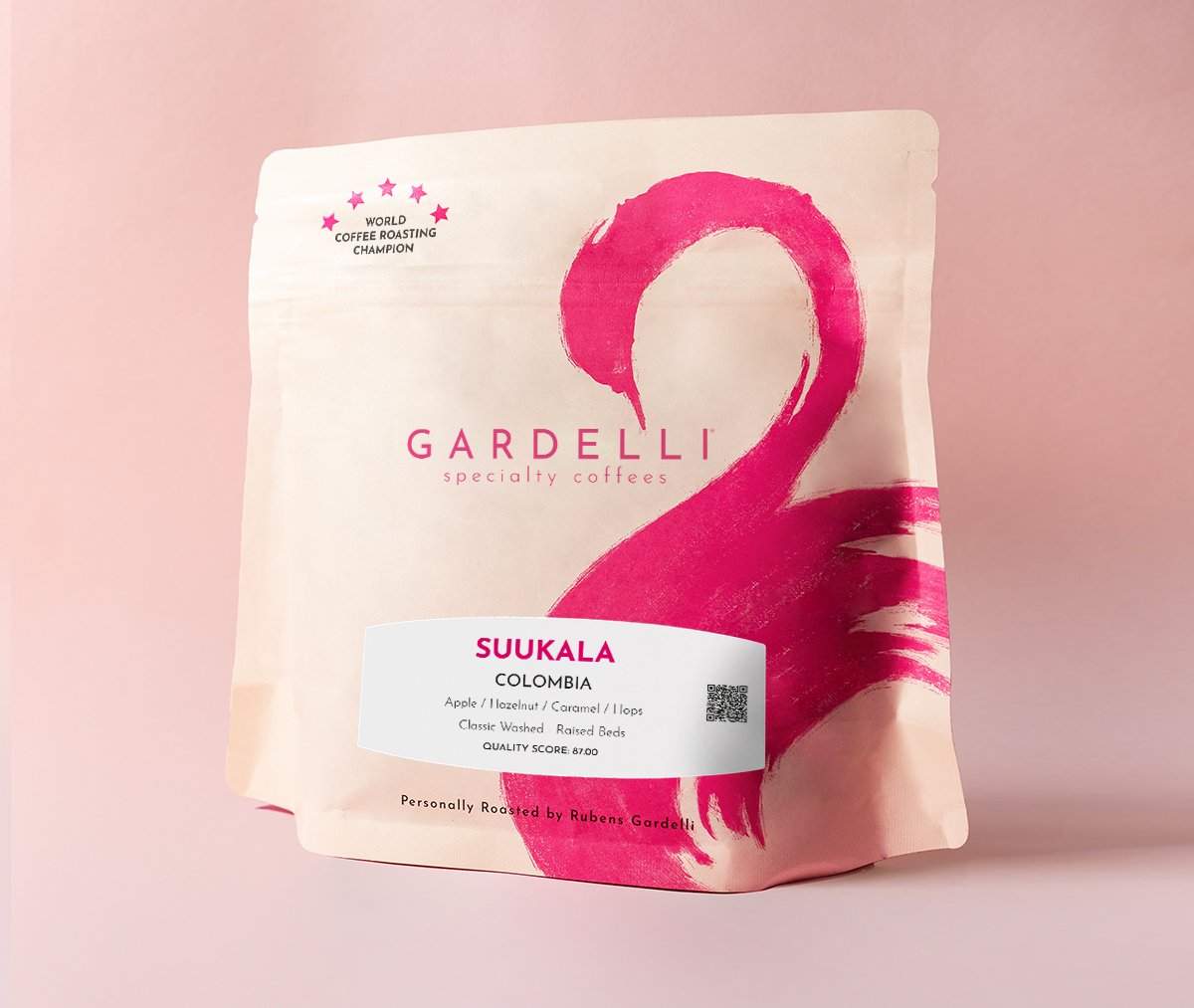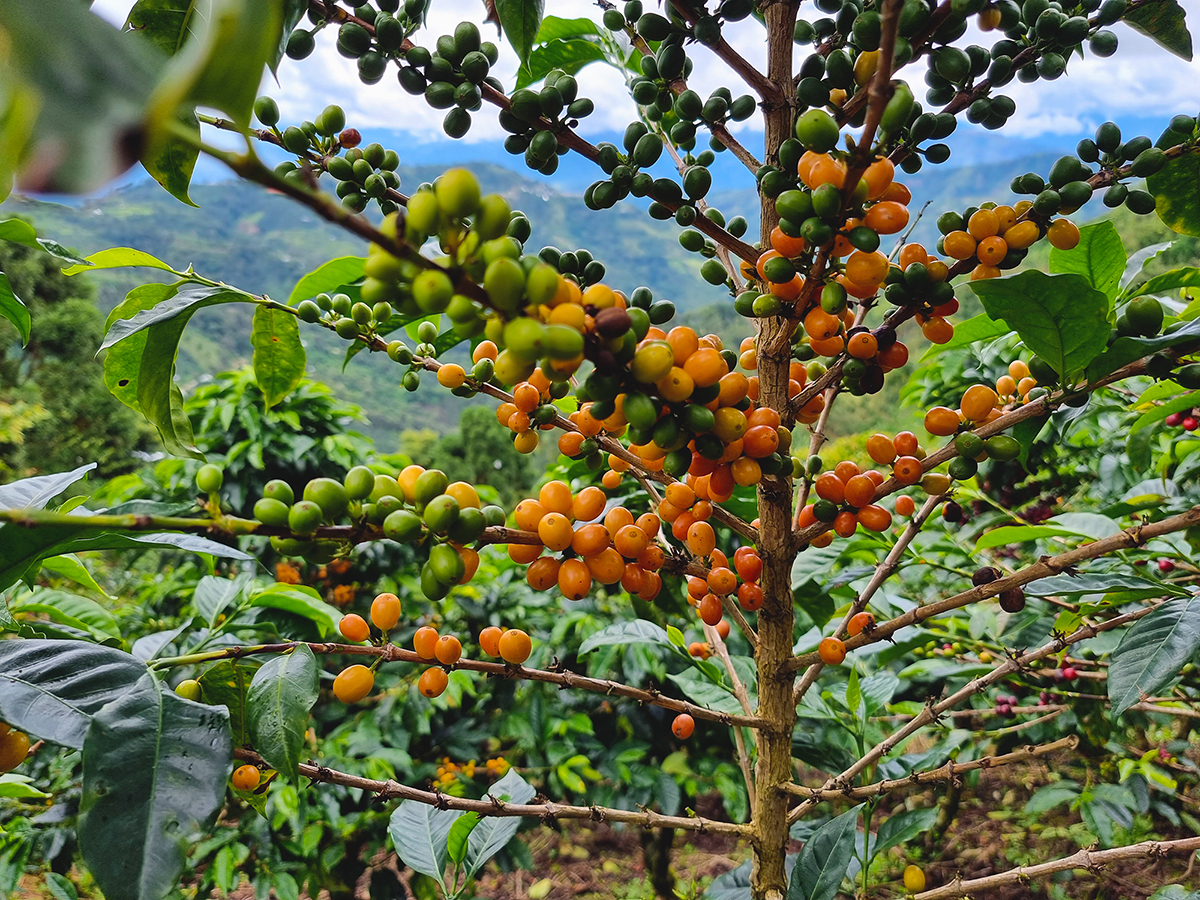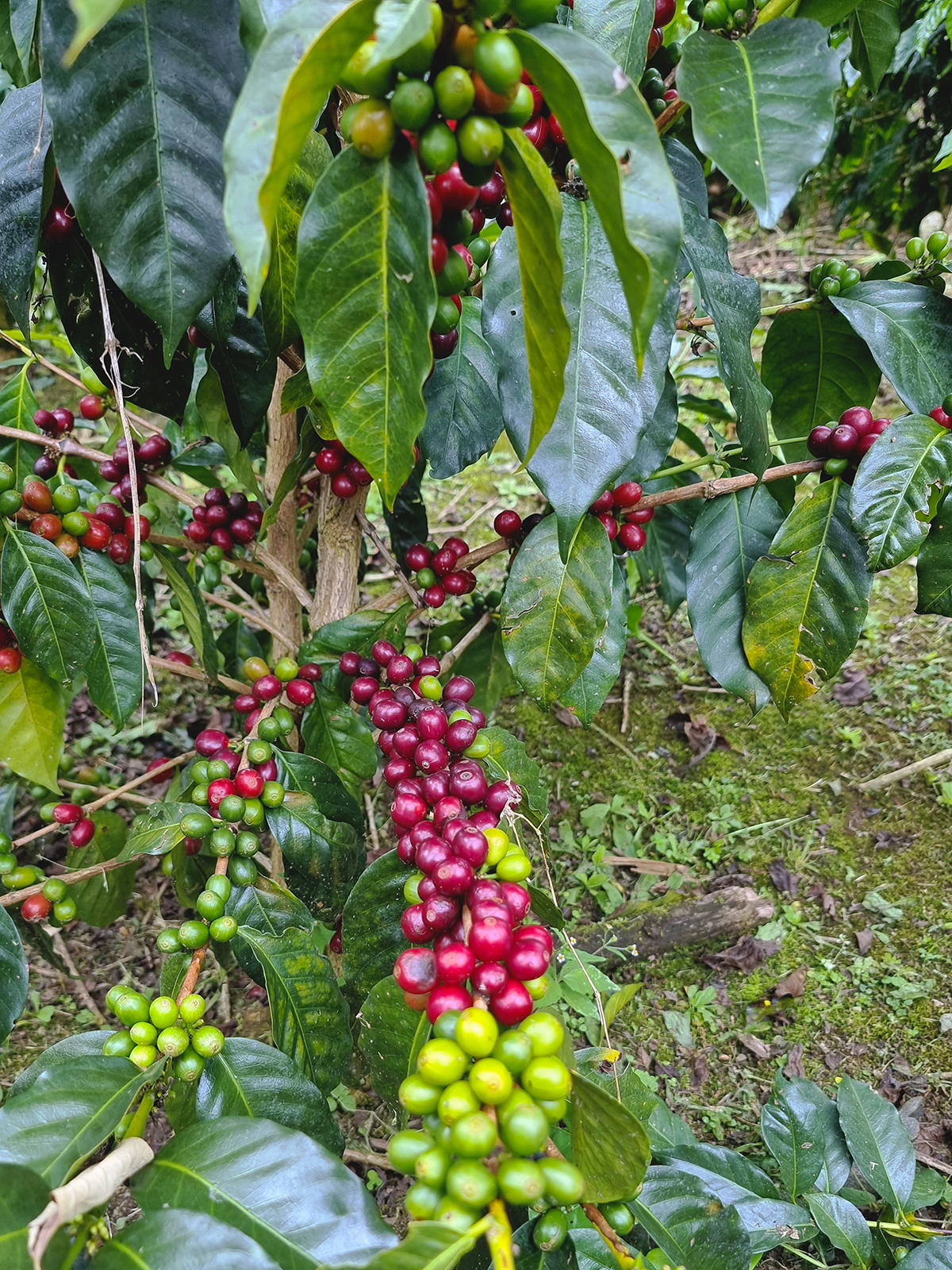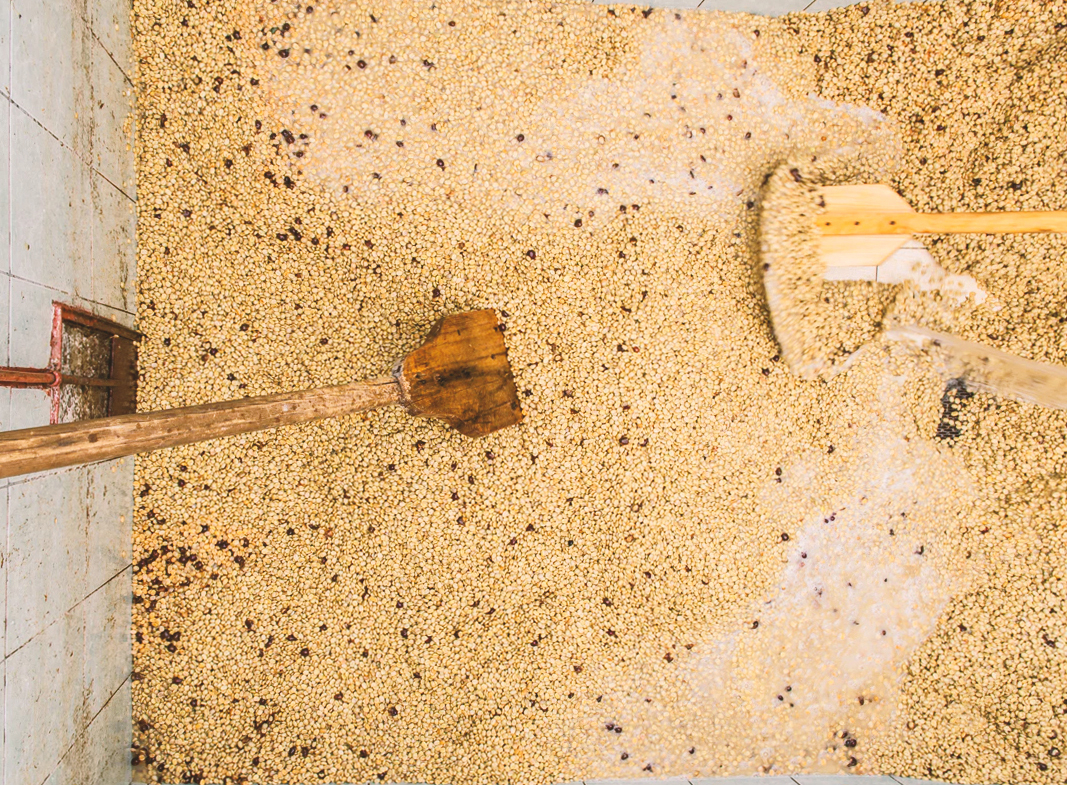



Colombia
QUALITY SCORE: 87.00
Cup Notes
Apple / Hazelnut / Caramel / Hops
Suggested for espresso and filter
Discover the enveloping taste of Suukala, the fruit of the labour of a community determined to rise, investing in excellence and mastering the best cultivation and processing practices.
This cup will transport you to the breathtaking landscapes of Colombia and the story of those who cultivate it.
when we roast
We freshly roast to order all coffees on Monday, Wednesday and Friday (excluding national holidays), and ship the same day! Cut-off time is 11:59pm (UTC+1) of the day before the roast day. *We only ship whole beans*
This coffee comes from 35 smallholders based in the area of Ortega, Tolima belonging to an association called Cafe Agrario.
Cafe Agrario has experienced hardship, as it is situated in a region affected by the civil war. It has also been impacted by poor leadership and fraudulent practices of some buyers: the coffees would be sold on credit to coffee buyers that never paid upon delivery. When it comes to the leadership, the Association was started in 2014 but it is not until 2017 that its members found out the association had not been formally registered due to leadership issues.
In the more recent years farmers who make up the association have been focusing on specialty coffee to add value to their product. They have also been roasting and selling coffee locally. Siruma, a specialty coffee export partner in Colombia, has invested in this community and the company's agronomist, Pilar, has held multiple workshops both on coffee processing and on the organisation of the Association as per the association members' request. They have also been taught how to cup so as to understand the quality of their own coffee.
The association wants to keep developing: particularly, the members hope to have their own warehouse and buying point for their members to be able to deliver coffee straight to Siruma with the aim of vertically integrating the supply chain and achieving greater control over it. They have just delivered their first coffees to Siruma on their own, which is a huge marker of progress.
The association has been certified as organic since 2020. Committed to organic production practices, the association makes its own organic fertiliser to distribute among producers. The association has also invested in the training for better waste water management to protect environment.

CATURRA
Caturra is a natural mutation of the Bourbon variety, discovered on a plantation in the state of Minas Gerais, Brazil, sometime between 1915 and 1918. This mutation, characterized by a single-gene causing dwarfism or compact growth, earned the variety its name, derived from the Guarani word meaning "small," also known as "Nanico."
Following the discovery of Caturra, selections were conducted by the Instituto Agronomico (IAC) of Sao Paulo State in Campinas, Brazil, starting in 1937. Breeders were particularly intrigued by Caturra's reduced size, allowing for closer plant placement, and its closely spaced secondary branches, facilitating increased fruit production within the same space. The selection process for Caturra, termed mass selection, involved choosing individuals based on superior performance, combining seeds from these plants to form a new generation, and repeating the process.
Although never officially released in Brazil, Caturra became prevalent in Central America. Introduced in Guatemala in the 1940s, widespread commercial adoption took another three decades. From Guatemala, it spread to Costa Rica, Honduras, and Panama. For many years, Caturra held significant economic importance in Central America, often serving as a benchmark against which new cultivars were tested. In Colombia, Caturra accounted for nearly half of the country's production until a government-sponsored program, starting in 2008, promoted the renovation of over three billion coffee trees with the leaf-rust-resistant Castillo variety, which has Caturra parentage.
Caturra played a role in the intensification of coffee cultivation in the region during the second half of the 20th century, marked by higher-density planting, often in full sun. Additionally, Caturra is recognized as one of the parent varieties in the so-called "Catimor" family of cultivars. Various lines of the coffee-leaf-rust-resistant Timor Hybrid were crossed with Caturra to produce a dwarf/compact plant with rust resistance.
CASTILLO
Castillo is named after the researcher Jamie Castillo, who helped Cenicafe, Colombia’s coffee research centre, develop the varietal in 2005.
Castillo was designed as an improvement on the Colombia variety. It is resistant to leaf rust (roya) and has quickly become the most planted coffee in Colombia. It is high-yield, resistant to leaf rust and other prevalent diseases and its smaller size allows for greater planting density.
COLOMBIA
Using Catimor’s HdT x Caturra recipe as a blueprint, Cenicafé first created the Colombia variety as an F5 composite, and released it in 1982.


Once picked, cherries are fermented for 24 hours and then washed and dried.
During the harvest period, the cherries are picked every 20 days with the pickers receiving a premium for ripe cherry selection. Once the coffee is picked and taken to the beneficio it is then pulped and fermented for 24 hours in a tiled tank. The coffee is then washed three times and taken to African beds for drying.
